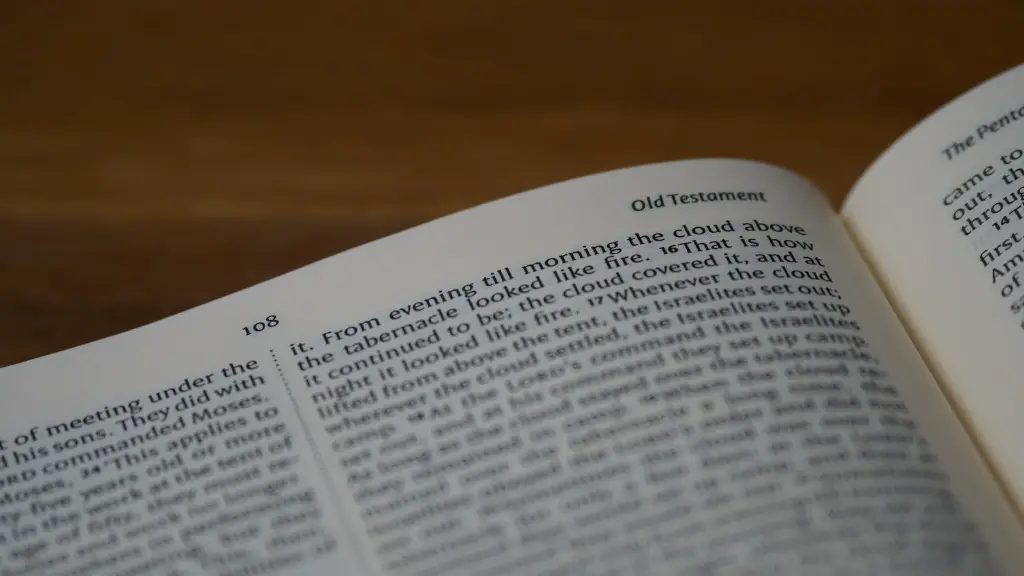Many are familiar with the story of the Ten Plagues, found in the Bible in Exodus chapters 7-10. According to the Old Testament, God punished the Egyptians for not allowing the Hebrews to pursue the worship of their own God by afflicting them with ten terrible plagues in a short period of time. These plagues consisted of the following: blood, frogs, gnats, boils, hail, locusts, darkness, the death of the firstborn and the parting of the sea.
The significance of the Ten Plagues is that they made it impossible for the Pharaoh to persist in denying freedom to the Hebrew people. The power and magnitude of the plagues gave evidence to the people that the God of Israel was the One True God. When spoke, the plagues emerged, a display of God’s anger and authority. The Ten Plagues shifted the power from Pharaoh and his magicians to the side of Moses and his people.
Rabbi Harold Kushner, author of the book “To Life,” explains that the Ten Plagues and their associated supernatural convictions are intended to help humans deal with afflictions when modern medicine cannot provide any answers. He believes that the story of Moses and the Ten Plagues can offer “comfort, reassurance, and protection in the face of life’s greatest anxieties and illnesses.”
Rabbi Kushner believes that by retelling and learning from the story of Moses and the Ten Plagues, individuals can be empowered to better face and conquer their own hardships, much like Moses and his followers. He views it as a reminder that even in midst of the most difficult of times, a loving deity is in control and there is hope for a better future. He suggests that people who feel overpowered and even defeated by life’s situations can seek strength, comfort and courage in the Ten Plagues Story.
In Judaism, studies of the Ten Plagues and their sequence alludes to the deep spiritual meanings of these experiences. According to rabbis, each of the plagues signifies significant spiritual concepts such as detachment, redemption and faith in God. Each plague encourages spiritual transformation and prayer, such as tefilla zaka, a special prayer of thanksgiving and supplication uttered in order to prevent the coming of any harm.
The Ten Plagues, and their legacy, are integral to Jewish practice of faith, hope and gratitude for the ultimate freedom which God provides to the Jews. This freedom is to be remembered and commemorated annually in the holiday of Passover, when the Jews commemorate their liberation from slavery. The Ten Plagues, which are remembered on the first night of the Passover Seder, represent the power of faith, hope and strength in the face of overwhelming odds.
Though the plagues are seen as God’s punishment of the Egyptians and a proof of his power, Jews are taught to be cautious in the way they consider and talk about them. Jews view the plagues as both a warning of the consequences of mistreating His people and a reminder of his immense love and protection.
Biblical Context of the Plagues
The ten plagues were more than mere punishments inflicted by an angry God upon the Egyptians. Rather, it was part of a story of a people’s redemption from a long period of slavery. God had peacefully negotiated for the Israelites’ release from their enslavement, and His hand was forced by Pharaoh’s refusal to release them. As a result, God sent the Plagues in order to make it clear to Pharaoh that he was not dealing with mortal forces.
Though these Plagues eventually served as a catalyst for freedom for the Israelites, God was not out only to punish Egypt. The narrative of these plagues told in the Bible also highlights a particular aspect of Israelite theology – that God was ultimately the supreme authority. His authority superseded that of any human, even of Pharaoh, and even more so the gods of Egypt. This is why the events of the Ten Plagues came to be seen as a significant event in world history.
The story of the Ten Plagues gives testament to God’s power and His ability to do whatever He pleases. The narrative of the plagues is a reminder that God is ultimately in control of all authority, even in moments when life may seem out of control. The Ten Plagues demonstrate that whatever is done, God remains in control. They demonstrate His ability to corporately protect, ultimately guide, and in the end bring deliverance.
The biblical narrative of the Ten Plagues highlights the power of prayer and demonstrates that despite the power of Pharaoh and the forces of Egypt, God’s will is ultimately what will occur. The narrative around the Ten Plagues messages a clear call for humanity to follow the divine guidance. This guidance is often given via prophets and God’s appointed leaders, but in many cases, people choose to disregard it. By demonstrating His divine might over Egypt through the plagues, God shows a reminder to modern readers that His laws should be followed with all due reverence and respect.
The story of the Ten Plagues further constantly emphasizes that the power of the Almighty trumps any force set against it, no matter how vast. The biblical narrative of the Ten Plagues stress that God’s plan, no matter how mysterious and confusing, will always ultimately be victorious, despite any contrary forces. This understanding is a necessary lesson not only to followers of the Bible, but to all of humanity – fear not, God will protect His own.
The Religious Implication of the Plagues
As with many other stories in the Bible, the implications of the Ten Plagues apply to a much broader spiritual realm. For Jews, the Ten Plagues are a story about redemption that follows a period of slavery, and about finding hope in moments of despair. The story of Moses and the Plagues is an example for Jews to use during difficult times and as an example of strength and courage. Moreover, the narrative conveys a clear agreement between God and man to abide by religious tenets, something that applies to all of humanity.
In Christian tradition, the Ten Plagues story is seen as a prefiguring of the death, burial, and resurrection of Jesus, who died and rose again to free people from their sins. One of the primary themes of the new testament is that Jesus brings a new and superior covenant than what had been known during the time of the ten plagues. The Ten Plagues have a universal meaning in the story for both Jews and Christians, demonstrating the power of faith and the ability to see beyond present troubles that life so often presents.
The Ten Plagues story has lent its themes to many Christian works of art and music, serving as a reminder of God’s ultimate power over every situation. It is a significant part of Christian storytelling and stands as a reminder of the power of God to overcome troubles and tribulations, and of faith’s ability to provide solace and strength to believers.
Beyond religious implications, the Ten Plagues are an integral part of popular culture, with references in music, literature, and film. Through these references, the story is seen as an example of resilience and courage in the face of overwhelming odds. The Ten Plagues are a significant part of history and culture, serving as a reminder of the power of faith, hope, and strength in moments of trouble.
The Ten Plagues have become a reminder for people of all religions and backgrounds to have faith in times of hardship. The Ten Plagues demonstrate God’s immense power, His ability to protect and deliver His people, and the importance of remaining faithful, even in the face of tremendous odds. The story of the Ten Plagues is a reminder to have faith and trust in God, no matter the situation.
The Plagues in Popular Culture
The Ten Plagues have been referenced throughout popular culture, portraying themes of resilience and strength. Popular references to the Ten Plagues story include works such as Victor Hugo’s Les Misérables, Alice Walker’s The Color Purple and The Prince of Egypt, a Dreamworks animated feature film. These works demonstrate the continued relevance of the Ten Plagues story, as they are narrated to evoke deep emotional responses of courage, resilience, and determination.
The popular band Radiohead also references the Ten Plagues story in the song “Climbing up the Walls.” The lyrics in the song draw upon the Biblical story, using it as a powerful metaphor for confronting personal difficulties. The message in the song is seen as a reminder to confront difficult situations head on, and to use faith as a source of strength and guidance.
The Ten Plagues story has also been referenced in other popular works such as the television series South Park and the video game Bejewelled. These references provide a modern take on the story of Moses and the Ten Plagues, serving as reminders of faith, strength, and resilience in the face of overwhelming odds.
The legacy of the Ten Plagues still stands in popular culture today, providing a reminder of the power of faith. The Ten Plagues story is used as an example for those going through hard times to look for strength and courage in faith. The story is told and retold to demonstrate the power of faith in difficult moments.
The Ten Plagues have remained an integral part of popular culture, offering a powerful message of resilience, strength, and faith. From works of literature to animated films and award-winning music, the Ten Plagues are a reminder of the power of faith and the ability to overcome any situation.
The Impact of the Ten Plagues Today
The Ten Plagues story is a significant part of history and culture, offering insight on how to live with courage, faith and resilience. By tapping into the power of the Ten Plagues story, individuals can find comfort in the most difficult of moments. In modern times, the story of Moses and the Ten Plagues can serve as a beacon of faith and strength, offering hope and courage to those in need.
Several organizations today focus on using the Ten Plagues story in a meaningful way. Such organizations focus on the spiritual meaning and implications of the Ten Plagues and their sequence, such as Hope and Joy, an organization based in Israel, which runs seminars and workshops to tell the story of the Ten Plagues from a relevant, modern perspective. By connecting the story of the Ten Plagues to everyday life, the organization seeks to bring on personal change and growth.
Organizations such as Hurry Slowly seek to use the story of the Ten Plagues as a starting point for reflection and spiritual growth. Through discussions and seminars on the spiritual implications of the Ten Plagues, individuals are invited to explore deeper encounters with their faith and their life. The goal is to empower individuals by connecting them to the strength of God and the deliverance found in faith.
The Ten Plagues story offers strength and comfort in moments of despair, reminding individuals of their relationship with God and of His power to deliver. The story serves as a reminder of the power of faith, hope and strength and can serve as a reminder for individuals to have faith





